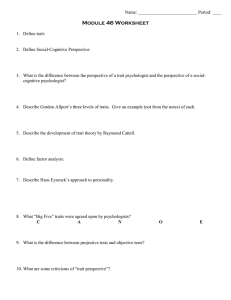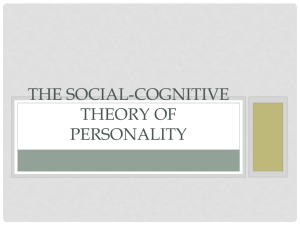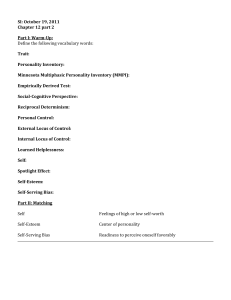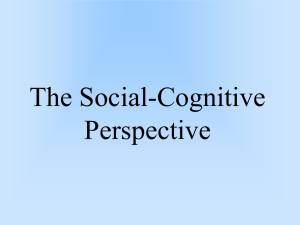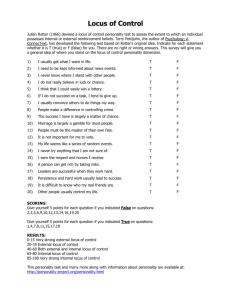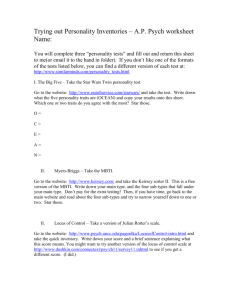The Social-Cognitive Perspective of Personality From the unconscious to traits
advertisement
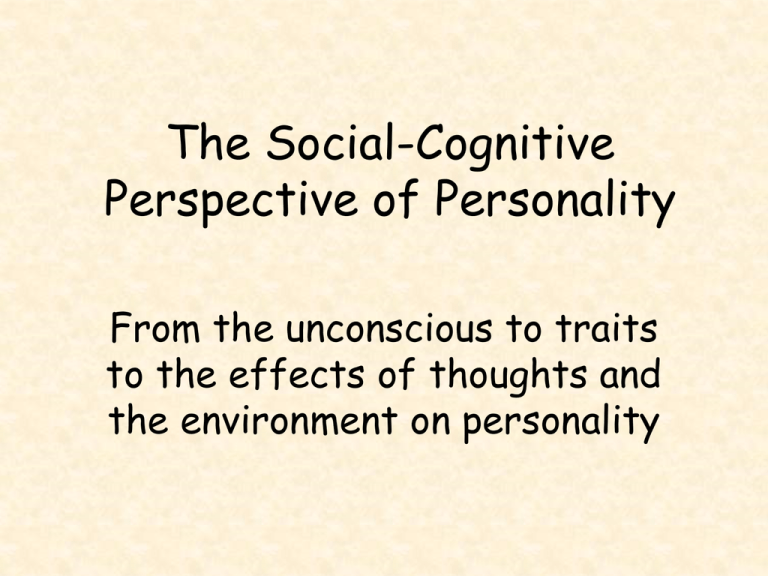
The Social-Cognitive Perspective of Personality From the unconscious to traits to the effects of thoughts and the environment on personality Social-Cognitive Perspective Social Learning Theory • People gain personality by watching others (it is learned) and being either reinforced or punished – Albert Bandura – In other words… Monkey See – Monkey Do Social-Cognitive theorists believed however that it was more than the environment that impacted personality • Reciprocal Determinism – the interaction between a person’s behavior, cognitions (the way you think about the world) and the environment to create your personality • Bandura also focused on the importance of SelfEfficacy – the belief that you are capable of performing in a certain reach your goals – i.e. = you believe you can do things manner to Cognition High SE = confidence in abilities Low SE = less confidence in abilities Behavior Environment How Reciprocal Determinism Can Work The TV you watch, friends you hang with, music you listen to were all chosen by you (your personal characteristics) People’s characteristics influence the kind of environment in which they find themselves. Those environments, in turn, influence and modify people’s personal characteristics. Personal Control (also called locus of control) Our sense of controlling our environment rather than the environment controlling us Two Types: Internal Locus of Control And External Locus of Control Internal Locus of Control • The perception that one controls one’s own fate and environmental influences External Locus of Control • The perception that chance or outside forces beyond one’s personal control determine one’s fate. Learned Helplessness • Hopeless feeling when an animal or human can’t avoid repeated bad events • People often perceive control as external and may often eventually give up
